
Find A Professional
More Items From Ergsy search
-

How long do the results of a facelift last?
Relevance: 100%
-

What is a mini facelift?
Relevance: 98%
-

Will a facelift remove all my wrinkles?
Relevance: 98%
-

How much does a facelift cost?
Relevance: 94%
-

What is a Facelift?
Relevance: 91%
-

Are non-surgical facelifts effective?
Relevance: 81%
-

Can a facelift be combined with other procedures?
Relevance: 72%
-

Who is an ideal candidate for a facelift?
Relevance: 70%
-

How should I prepare for a facelift?
Relevance: 70%
-

Will I have visible scars after a facelift?
Relevance: 67%
-

How soon can I return to work after a facelift?
Relevance: 63%
-

Is a facelift painful?
Relevance: 61%
-

What is the recovery time for a facelift?
Relevance: 59%
-

What are the common side effects after a facelift?
Relevance: 53%
-

Are there any risks associated with facelifts?
Relevance: 53%
-

How soon can I return to work after a facelift?
Relevance: 52%
-

Crown Court - Preparing to come to court
Relevance: 44%
-

How is a facelift performed?
Relevance: 42%
-
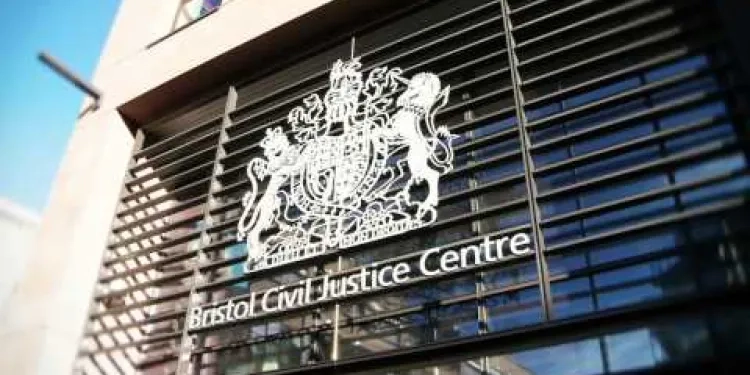
The Family Court without a Lawyer - Video 1 of 3
Relevance: 41%
-

Can exercises help with labor preparation?
Relevance: 39%
-

What should I expect during a consultation for a facelift?
Relevance: 39%
-

How soon should I prepare for the 2026 tax changes?
Relevance: 34%
-

How can I prepare for the DVSA Theory Test?
Relevance: 29%
-

Is financing available for a facelift?
Relevance: 29%
-
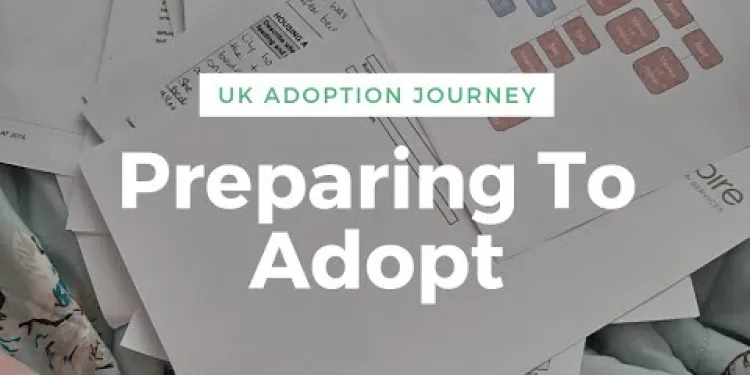
UK Adoption Journey | What we did to prepare | Stage One Update
Relevance: 28%
-
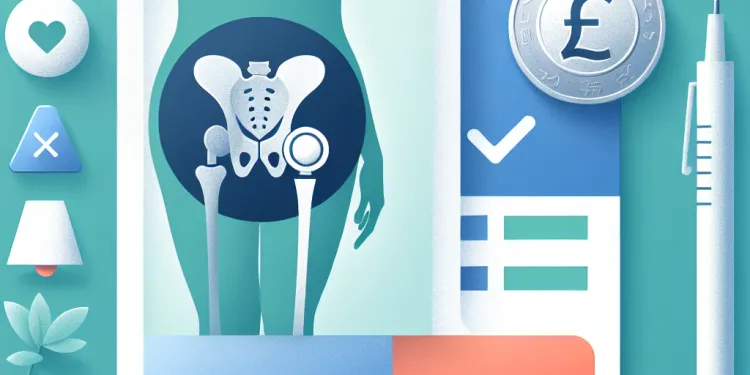
How do I prepare for hip replacement surgery?
Relevance: 25%
-

How do I choose a qualified facelift surgeon?
Relevance: 24%
-

How can I prepare for an eviction court hearing?
Relevance: 24%
-

How should I prepare for a Botox appointment?
Relevance: 22%
-

How long does a hip replacement surgery take?
Relevance: 21%
-

How can I apply for a job at the National Trust?
Relevance: 20%
-
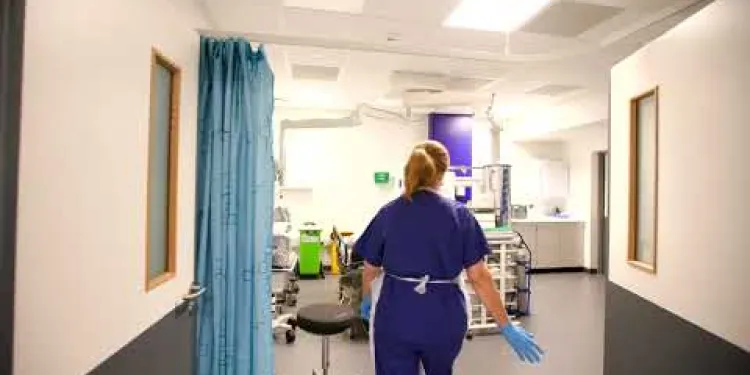
Endoscopy Unit
Relevance: 18%
-

Adoption and dealing with a Loss
Relevance: 18%
-

How should I prepare for a womb lining test?
Relevance: 17%
-

What is the pass mark for the Hazard Perception Test?
Relevance: 17%
-

Stage One Paperwork | UK Adoption Journey
Relevance: 17%
-
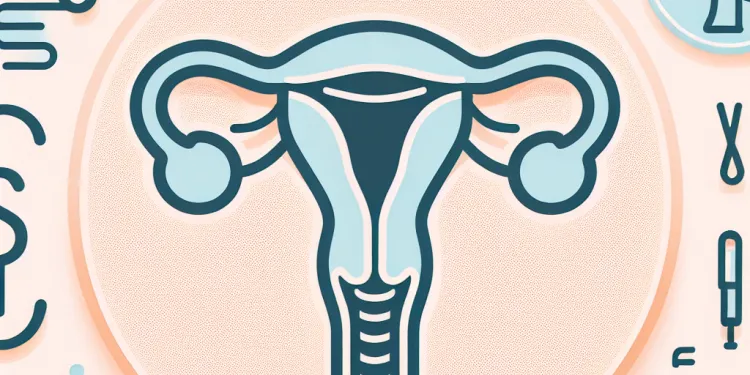
Does the womb lining test require any special preparation?
Relevance: 17%
-

Can parents provide packed lunches instead of school meals?
Relevance: 17%
-

The Family Court without a Lawyer - Video 2 of 3
Relevance: 17%
-

How can I plan for future care needs?
Relevance: 17%
How Should I Prepare for a Facelift?
Preparing for a facelift, also known as rhytidectomy, involves several steps to ensure a safe procedure and optimal results. If you are considering this surgery in the UK, it’s important to follow your surgeon’s guidelines closely. Here’s a comprehensive guide to help you prepare for the procedure.
Consultation with a Qualified Surgeon
The first step in preparing for a facelift is to schedule a consultation with a qualified plastic surgeon. In the UK, ensure that your surgeon is registered with the General Medical Council (GMC) and is a member of the British Association of Aesthetic Plastic Surgeons (BAAPS). During the consultation, discuss your goals, the procedure’s risks, benefits, and recovery process. This initial appointment is crucial to establish realistic expectations and to decide if a facelift is the right choice for you.
Medical Evaluation
Before the surgery, your surgeon will conduct a thorough medical evaluation. This may include blood tests and a review of your medical history. Inform your doctor about any medications or supplements you are taking, as some may need to be adjusted or stopped before the procedure. Conditions such as hypertension, diabetes, or heart disease must be well-managed to minimize surgical risks.
Avoid Smoking and Alcohol
Smoking can hinder the healing process and increase the risk of complications. It is advisable to stop smoking at least six weeks before the surgery and during the post-operative period. Alcohol consumption should also be minimized, as it can interfere with your body’s ability to heal and increase the risk of bruising and swelling.
Prepare Your Home for Recovery
Before your surgery, prepare a comfortable recovery area at home. Stock up on essential items such as easy-to-prepare meals, medications, and any special supplies recommended by your surgeon. Arrange for someone to assist you for the first few days post-surgery, as you’ll need ample rest and may have limited mobility.
Avoid Certain Medications
Certain over-the-counter medications and supplements can increase bleeding risks. Avoid aspirin, non-steroidal anti-inflammatory drugs (NSAIDs), and herbal supplements like ginkgo biloba and garlic. Your surgeon will provide a complete list of substances to avoid in the weeks leading up to your procedure.
Follow Pre-Surgery Instructions
Your surgeon will give specific instructions regarding eating, drinking, and medications on the night before and the day of your surgery. It’s important to follow these instructions carefully to ensure a smooth procedure. Typically, you will be advised to fast for a certain period before the surgery.
Conclusion
By adequately preparing for your facelift, you can enhance the chances of a successful outcome and smooth recovery. Communication with your healthcare provider, preparing your home, and following pre-surgical instructions are vital steps in this process. Remember to address any questions or concerns with your surgeon to feel confident and informed as you approach your facelift procedure.
How Can I Get Ready for a Facelift?
Getting ready for a facelift means doing several things to make sure the surgery goes well. If you want a facelift in the UK, it’s important to listen to your doctor’s advice. Here’s a simple guide to help you prepare.
Talk to a Qualified Doctor
The first step is to meet with a plastic surgeon. In the UK, make sure the doctor is on the General Medical Council list and part of the British Association of Aesthetic Plastic Surgeons. At the meeting, talk about what you want, the risks and benefits, and how you'll get better afterwards. This talk is important to find out if a facelift is right for you.
Health Check-Up
Before the facelift, the surgeon will check your health. This means looking at your medical history and maybe doing blood tests. Tell the doctor about any medicine or vitamins you take. Some might have to be changed or stopped. If you have conditions like high blood pressure or diabetes, they need to be controlled to avoid risks.
Stop Smoking and Drinking Alcohol
Smoking can make healing harder and cause problems. Stop smoking at least six weeks before the surgery and after it too. Drinking alcohol should also be cut down because it can affect healing and cause more bruising.
Get Your Home Ready
Before the surgery, set up a comfy place at home to rest. Have easy-to-make meals ready, and get the medicines and items your doctor suggests. Ask someone to help you for a few days after the surgery because you will need lots of rest.
Avoid Certain Medicines
Some common medicines can cause more bleeding. Don’t take aspirin, some pain relievers (like NSAIDs), and herbs like ginkgo biloba and garlic. Your doctor will give you a list of what not to take before the surgery.
Follow Surgery Instructions
Your doctor will tell you what to eat or drink and what to do before the surgery. Follow these instructions carefully. Usually, you should not eat or drink for a while before surgery.
Conclusion
Getting ready well for a facelift can help it go smoothly and help you recover better. Talking with your doctor, preparing your home, and following the instructions are important steps. If you have questions, ask your doctor so you feel ready and sure about your facelift. Remember, it's okay to ask for help if you need it.
Frequently Asked Questions
What should I do before a facelift consultation?
Research your surgeon, prepare questions, and gather your medical history.
How long before the facelift should I stop smoking?
You should stop smoking at least 4 to 6 weeks before the surgery.
Can I drink alcohol before my facelift surgery?
Avoid alcohol for at least 48 hours before your surgery.
What medical tests might be required before a facelift?
Blood tests, EKG, and a physical examination may be required.
Should I eat or drink before a facelift?
Do not eat or drink anything 8 hours before your surgery.
Is it necessary to arrange for transportation after the surgery?
Yes, arrange for someone to drive you home as you won't be able to drive.
How should I prepare my skin before a facelift?
Follow any skincare regimen advised by your surgeon, such as gentle cleansing and moisturizing.
What medications should I avoid before the procedure?
Avoid blood thinners, aspirin, anti-inflammatory drugs, and certain herbal supplements as advised by your doctor.
Should I inform my surgeon about all the medications I'm taking?
Yes, provide a complete list of medications, including prescription, over-the-counter drugs, and supplements.
What should I wear on the day of my facelift surgery?
Wear comfortable, loose-fitting clothing that doesn’t need to be pulled over your head.
How should I prepare my home for post-surgery recovery?
Prepare a resting area with necessary items (like pillows, medication, and entertainment) easily accessible.
Can I wear makeup on the day of my facelift?
Do not wear any makeup, lotions, or creams on the day of the surgery.
Do I need to fast before facelift surgery?
Yes, you should fast, which typically means no food or drink 8 hours prior to surgery.
Should I take any special medications or supplements before the surgery?
Only take medications or supplements that your surgeon has approved.
How can I manage anxiety before the facelift procedure?
Discuss with your surgeon about any anxiety and possible calming medications, and use relaxation techniques like deep breathing.
What kind of support will I need during recovery?
You'll need someone to assist you for at least the first 24 to 48 hours after surgery.
Can I take my regular medications before surgery?
Only take medications that your surgeon has cleared you to take prior to surgery.
How important is it to follow the surgeon's preoperative instructions?
It is crucial to follow all preoperative instructions to ensure safety and optimal results.
What should I do if I feel sick before the surgery?
Contact your surgeon immediately if you feel unwell before surgery.
Do I need to inform my employer about my surgery?
Yes, arrange for the necessary time off and inform your employer about your recovery period.
What to do before a facelift meeting?
Here are some simple steps to help you get ready:
1. Learn about facelifts: Find out what a facelift is and what it does. You can read books or look online with a trusted adult.
2. Write down questions: Think of things you want to ask the doctor. Write them down so you don't forget.
3. Bring a friend: Ask someone you trust if they can come with you. They can help you remember what the doctor says.
4. Share your health history: Tell the doctor about any medicines you take or health problems you have. This helps them take care of you.
5. Use helpful tools: You can use a voice recorder to remember what is said, or draw pictures to help you understand.
These steps can make your visit easier and more helpful!
Learn about your doctor, think of questions to ask, and collect your health information.
When should I stop smoking before my facelift?
If you smoke, it is important to stop before your facelift. Smoking can make it harder for your body to heal. Try to stop smoking at least 2 weeks before your surgery.
Here are some tips to help you stop:
- Ask your doctor for advice.
- Use nicotine patches or gum to help with cravings.
- Find a friend to support you.
- Think about all the reasons you want to quit.
Remember, stopping smoking will help you heal better and faster. It will also make your skin healthier. You can do it!
You should stop smoking at least 4 to 6 weeks before the surgery.
Here's what you can do to help:
- Use nicotine gum or patches to help you quit.
- Talk to a doctor or nurse for advice.
- Try to stay busy to keep your mind off smoking.
Is it okay to drink alcohol before my facelift surgery?
No, it is not okay to drink alcohol before your facelift surgery.
Alcohol can make you bleed more. This is not good for surgery.
Talk to your doctor. They can help you understand why it's important not to drink before surgery.
If you need help to stop drinking alcohol, there are people who can support you. Your doctor can suggest ways to help.
Do not drink alcohol for 2 days before your surgery.
What health checks do you need before a facelift?
Before you have a facelift, doctors might need to do some health checks. These checks make sure it is safe for you to have the surgery. Here are some things they might do:
- Check your blood to see how healthy it is.
- Look at your heart to make sure it's strong.
- Check your general health with a physical exam.
If you need help understanding, you can:
- Ask a friend or family member to explain things.
- Use simple picture books or guides about health checks.
- Talk to your doctor if you have questions.
You might need some tests:
- A blood test.
- A heart check-up called an EKG.
- A doctor will also check your body.
These can help the doctor see if everything is okay with you.
Can I eat or drink before having a facelift?
A facelift is a surgery to make your face look younger. Before this surgery, you may need to stop eating or drinking for a while. This helps keep you safe during the operation.
Ask your doctor what you should do. They will tell you when to stop eating and drinking. Listening to your doctor is very important.
Here are some tips:
- Write down your doctor’s instructions so you don't forget.
- Set a reminder to stop eating and drinking on time.
- Ask someone you trust to help you remember.
Do not eat or drink anything for 8 hours before your surgery. This means from the night before your surgery. Ask someone for help if you find it hard to remember. You can use an alarm or a note to remind you.
Do you need a ride home after the surgery?
Yes, ask someone to give you a ride home because you can't drive.
How do I get my skin ready for a facelift?
Follow the skin care plan that your doctor gives you. This might include washing your face gently and using a moisturizer to keep your skin soft.
Which medicines should I not take before the procedure?
Ask your doctor which medicines you should stop. You may need to stop taking some medicines before the procedure.
Tell your doctor about all the medicines you take. This includes pills, patches, and creams.
Use a calendar or notebook to mark the days you need to stop taking your medicines.
Ask someone you trust to help remind you.
Stay away from medicines that make your blood thinner, like aspirin. Don't take drugs that stop swelling. Some herbs are not safe either. Ask your doctor for advice on what to avoid.
Do I need to tell my doctor about all the medicine I'm taking?
Yes, make a full list of all the medicines you take. This includes medicines from the doctor, medicines you buy at the store, and vitamins or natural pills.
What clothes should I wear for my facelift surgery?
Here are some tips:
- Wear a loose, comfy shirt that is easy to take off and put on.
- Choose a top that buttons up the front or has a zipper. This way, you don’t have to pull it over your head.
- Wear pants that are stretchy or have an elastic band so you feel comfortable.
- Make sure your clothes are clean and soft, so they don’t bother your skin.
Ask a friend or family member to help you get dressed after the surgery if you need help.
Wear comfy clothes that are loose and do not go over your head.
How can I get my home ready after surgery?
Make a cozy space where you can rest. Keep things you need close by, like pillows, medicine, and fun things to do.
Can I put on makeup on the day of my facelift?
On the day of the surgery, don't wear any makeup, lotions, or creams.
Should I stop eating before my facelift surgery?
Yes, you must not eat or drink for 8 hours before the surgery.
Do I need to take any medicine or vitamins before the surgery?
It's important to talk to your doctor before taking anything. They will tell you what you need. You can also ask a family member or friend to help explain.
Only take medicine or vitamins that your doctor says are okay.
How can I feel calm before my facelift surgery?
Feeling worried before surgery is normal. Follow these tips to help you feel calm:
- Talk to your doctor: Ask questions so you know what will happen.
- Deep breathing: Take slow, deep breaths to help you relax.
- Listen to music: Play songs that make you feel happy and calm.
- Visualization: Imagine yourself feeling happy and calm.
- Talk to a friend: Share your feelings with someone you trust.
Use these tips to help you feel better. Remember, it's okay to feel worried. These feelings are normal.
Talk to your doctor if you are feeling worried. They can tell you about medicine to help you feel calm. You can also try taking slow, deep breaths to help you relax.
What help do I need while getting better?
You will need someone to help you for the first one or two days after your surgery.
Can I take my usual medicines before my operation?
Before your surgery, only take medicine your doctor says is okay.
Why is it important to do what the surgeon says before the operation?
Here’s why it’s good to follow what the surgeon tells you:
- Helps keep you safe
- Makes sure the operation goes well
- Stops problems before they happen
- Helps you get better faster
If you need help reading:
- Ask someone you trust to read it with you.
- Use a magnifying glass to see better.
- Use online tools to read text out loud.
It is very important to follow the doctor's instructions before your surgery. This helps keep you safe and makes sure everything goes well.
What to Do if You Feel Sick Before Your Surgery
If you feel unwell before your surgery, tell your doctor. It is important to stay healthy for the surgery.
Here are some steps you can take:
- Rest as much as you can.
- Drink plenty of water.
- Eat healthy food.
If you are worried, call your doctor. They can help you and give advice.
If you feel sick before your surgery, tell your doctor right away.
Do I have to tell my boss about my surgery?
Tell your boss when you need to take time off to get better. Make sure you let them know how long this will be.
Useful Links
- Ergsy carfully checks the information in the videos we provide here.
- Videos shown by Youtube after a video has completed, have NOT been reviewed by ERGSY.
- To view, click the arrow in centre of video.
- Most of the videos you find here will have subtitles and/or closed captions available.
- You may need to turn these on, and choose your preferred language.
- Go to the video you'd like to watch.
- If closed captions (CC) are available, settings will be visible on the bottom right of the video player.
- To turn on Captions, click settings .
- To turn off Captions, click settings again.
More Items From Ergsy search
-

How long do the results of a facelift last?
Relevance: 100%
-

What is a mini facelift?
Relevance: 98%
-

Will a facelift remove all my wrinkles?
Relevance: 98%
-

How much does a facelift cost?
Relevance: 94%
-

What is a Facelift?
Relevance: 91%
-

Are non-surgical facelifts effective?
Relevance: 81%
-

Can a facelift be combined with other procedures?
Relevance: 72%
-

Who is an ideal candidate for a facelift?
Relevance: 70%
-

How should I prepare for a facelift?
Relevance: 70%
-

Will I have visible scars after a facelift?
Relevance: 67%
-

How soon can I return to work after a facelift?
Relevance: 63%
-

Is a facelift painful?
Relevance: 61%
-

What is the recovery time for a facelift?
Relevance: 59%
-

What are the common side effects after a facelift?
Relevance: 53%
-

Are there any risks associated with facelifts?
Relevance: 53%
-

How soon can I return to work after a facelift?
Relevance: 52%
-

Crown Court - Preparing to come to court
Relevance: 44%
-

How is a facelift performed?
Relevance: 42%
-

The Family Court without a Lawyer - Video 1 of 3
Relevance: 41%
-

Can exercises help with labor preparation?
Relevance: 39%
-

What should I expect during a consultation for a facelift?
Relevance: 39%
-

How soon should I prepare for the 2026 tax changes?
Relevance: 34%
-

How can I prepare for the DVSA Theory Test?
Relevance: 29%
-

Is financing available for a facelift?
Relevance: 29%
-

UK Adoption Journey | What we did to prepare | Stage One Update
Relevance: 28%
-

How do I prepare for hip replacement surgery?
Relevance: 25%
-

How do I choose a qualified facelift surgeon?
Relevance: 24%
-

How can I prepare for an eviction court hearing?
Relevance: 24%
-

How should I prepare for a Botox appointment?
Relevance: 22%
-

How long does a hip replacement surgery take?
Relevance: 21%
-

How can I apply for a job at the National Trust?
Relevance: 20%
-

Endoscopy Unit
Relevance: 18%
-

Adoption and dealing with a Loss
Relevance: 18%
-

How should I prepare for a womb lining test?
Relevance: 17%
-

What is the pass mark for the Hazard Perception Test?
Relevance: 17%
-

Stage One Paperwork | UK Adoption Journey
Relevance: 17%
-

Does the womb lining test require any special preparation?
Relevance: 17%
-

Can parents provide packed lunches instead of school meals?
Relevance: 17%
-

The Family Court without a Lawyer - Video 2 of 3
Relevance: 17%
-

How can I plan for future care needs?
Relevance: 17%